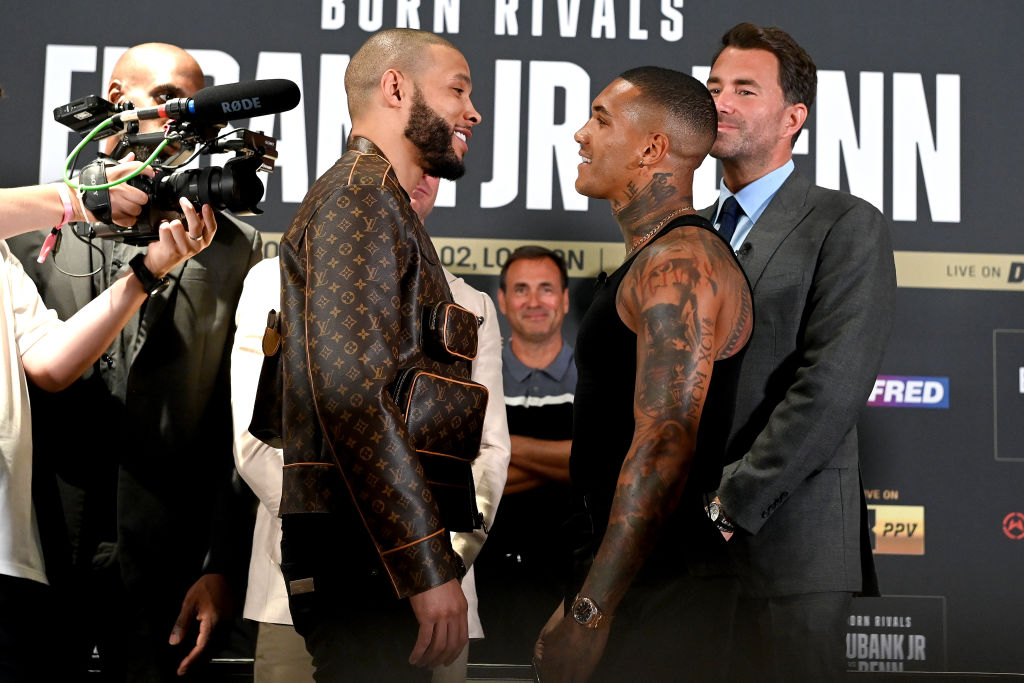Ed Warner: Boxing’s parallel existence, Benn-Eubank, and a Trussian shambles

The Sweet Science. The Noble Art. Boxing has a lore of its own and is a law unto itself.
It occupies a parallel existence in which its rules, first published under the sponsorship of the ninth Marquess of Queensbury in 1867, and a love of litigation – real and threatened – are deemed sufficient to see the sport through any storm or scandal.
This parallel world extends to boxing’s anti-doping regime. The Voluntary Anti-Doping Agency (Vada) conducts pre-fight testing to protect boxers. This supplements the work of the national agencies working under the auspices of the World Anti-Doping Agency (Wada). Last week’s late cancellation of the Conor Benn-Chris Eubank Jr bout has highlighted the flaws inherent in this system. The clue lies in the “voluntary” in Vada’s name.
Clomifene is an ovulatory stimulant used to treat female infertility. It can also enhance athletic performance in men and women by boosting testosterone. Benn tested positive for clomifene in a Vada test back in September.
This only became public days before his scheduled fight against Eubank. Both boxers wanted to continue – the prize purse is said to have been £3.5m plus a share of pay-per-view receipts – as did their promoters. The British Boxing Board of Control demurred and prevailed.
No surprise that it is now being threatened with litigation. The UK Anti-Doping Agency, which operates under the Wada umbrella, is taking a keen interest.
This is a shambles of Trussian dimensions. The results of any analysis of Benn’s ‘B’ sample are as yet unknown. The fighter may prove to be entirely innocent. Time, however, tends to move slowly in such processes and is measured in months and years, not days or even weeks.
The questions facing boxing
Two sets of questions loom largest for me. First, when did Benn learn of his failed test and when was Eubank informed? If this was weeks ago, why did the news break so close to the fight and not far earlier? Where did the duty of care to both boxers feature in discussions about the contest proceeding regardless?
Second, should Benn and Eubank have been allowed to be matched up in the first place? There is a significant difference in their usual fighting weights. Much was made of the risks to Eubank of dehydrating ahead of the weigh-in as he strove to get down to the agreed weight. But what of the risks to Benn of wanting to bulk up to reduce the size disadvantage he faced?
I’m not a massive boxing fan, but I’m no abolitionist either. I last enjoyed a live evening of the sport at the Royal Albert Hall back in 2019 when Nicola Adams had second billing for what proved to be her last fight. Her bout with Maria Salinas was ruled a draw by the judges when to my untutored eye Britain’s former Olympic champion looked to have lost.
Little over a month later she retired because of fears about her eyesight. Pause for thought for those of us who had taken enjoyment from seeing her fight, and a reminder about boxers’ welfare being paramount and the wisdom of erring on the side of caution.
The ringside judges in the Adams-Salinas fight may have been spot on. Corrupt judging though is at the root of boxing’s possible banishment from the Olympics. The International Boxing Association (IBA) has been stripped of responsibility for the sport at the Games. The International Olympic Committee will take direct control in Paris. Boxing is not currently on the roster for Los Angeles 2028.
The IBA last week cranked up its dispute with the IOC when its board of directors voted 14-1, with three abstentions, to allow Russians and Belorussians to fight once again under their national flags.
The one dissenting vote was from the Ukrainian council member who has questioned the veracity of the secret vote. But no other member has raised their hand to claim they voted against or abstained, so they either didn’t or have for reasons unknown chosen to stay silent. The IBA president, Umar Kremlev, is Russian. The IBA suspended the Ukrainian Boxing Federation, but not its boxers, last month.
Boxing’s parallel existence may well extend to life permanently outside the Olympics after 2024. The road from Olympic champion to box office stardom as a pro fighter is a well-trodden one. But does the sport care enough about this heritage while those at its centre live day-to-day for their next rush of dollars or political power?
At times like this it is often best to turn to those journals dedicated to individual sports, who care most deeply about their health, in this case Boxing News: “The only thing more problematic and potentially damaging than a dishonest fighter is a dishonest sport, particularly when it’s the sport and not the fighter in charge of the regulations, the punishments and the setting of standards.”
Back to the future
Boxing may not appear at LA 2028, but kickboxing, cricket, motorsport and flag football are all on a list of sports invited to present their credentials for inclusion at the Olympics. The IOC’s rolling modernisation programme continues.
The Commonwealth Games Federation meanwhile has just confirmed the finalised list of events for Victoria 2026. I’m disappointed to see shooting back in the Games – presumably the CGF feeling no option but to bow to pressure from India – and the addition of golf hardly seems in keeping with the ambition to modernise.
Much as I’d have loved to see wheelchair rugby make the cut, 3×3 wheelchair basketball should be fun. Coastal rowing carries the greatest intrigue for me. Check out the photo below from last weekend’s World Rowing Coastal Championships in Pembrokeshire.

To the dogs
I was overtaken four times at the Cowdray Park 10k last weekend by the winning dog in the canicross category.
Three times I regained my place: 1) unscheduled dip in the river; 2) water bowl at the 5k mark; 3) poo stop.
Congrats to the collie cross. As to the owner she hauled around after her, it looked like he was having the ultimate fartlek session. I’m sticking to two legs rather than six.
Ed Warner is chair of GB Wheelchair Rugby and writes at sportinc.substack.com
